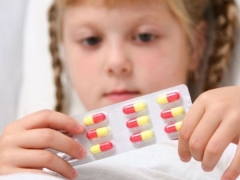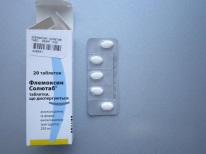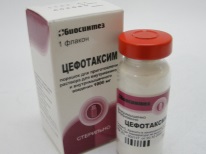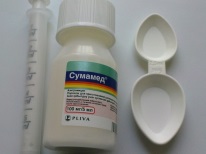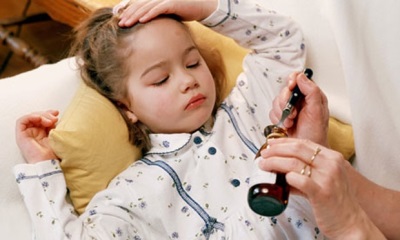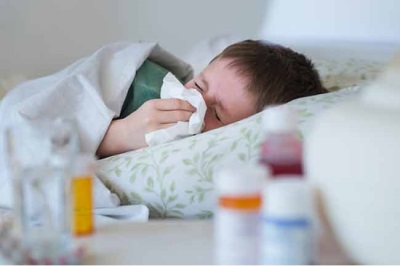Do you need antibiotics for children with cough and runny nose?
One of the groups of drugs used in the treatment of cough and runny nose, are antibiotics. They are not always prescribed, but there are situations when such drugs are justified and very necessary. Let's see when an antibiotic is needed for a sick child and which of the drugs in this group can be given in childhood.
Whether reception is expedient?
In many cases of diseases that occur with cough and runny nose, the appointment of antibiotics is justified, since the cause of such diseases in children are pathogenic bacteria. However, the doctor must be convinced of the need to take antimicrobial agents, because antibiotics will not help either with a viral infection, or with an allergic reaction, or with mechanical irritation of the nasopharynx and respiratory tract.
Most often, the appearance of cough, which is combined with a runny nose, increased temperature body, headaches, weakness and lethargy, is characteristic of a viral infection. If in this case you give the baby an antibiotic, there will be nothing but the risk of dysbacteriosis and allergy, that is, the child will not only recover faster, but his condition may worsen.
On the bacterial nature of the disease, manifested cough, tell these signs:
- Increase in body temperature over + 38 ° C for more than three days.
- Increase in the number of leukocytes in the total blood count. At the same time, the number of neutrophils increases and the leukogram “moves” to the left.
- Severe intoxication and shortness of breath.
- Long duration of the disease.
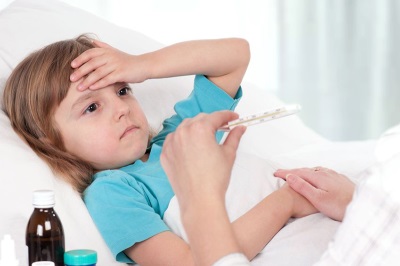
If the child's general condition improves, the body temperature decreases, but the cough remains, there is no reason to give the baby an antibiotic, since such a protective symptom as a cough disappears last and can last even several weeks after the end of the acute phase of the disease. Note that with a cough lasting more than 3-4 weeks, the child should definitely be shown to the doctor to find out the reason for such a long manifestation of the cough reflex.
Indications
Application antibiotics when coughing necessary when:
- Bronchitiscaused by bacteria.
- Inflammation of the lungs.
- Angina.
- Purulent tracheitis.
- Respiratory lesions caused by chlamydia or mycoplasmas.
- Pleurisy.
- Tuberculosis.
How to choose an antibiotic when coughing
The most correct behavior in case of suspected bacterial infection will be testing, among which special attention is paid to sputum culture. Such seeding will not only confirm that the disease is caused by bacteria, but also will establish which microorganisms it is and also find out which antibiotics they are sensitive to.
However, the results of such tests do not always come quickly, and the very poor state of health of the child may force him to begin treatment immediately. In such cases, prescribe drugs that have wide range of effects.
Choosing the right medication, the doctor will surely take into account the child's weight and age, since at 6 or 7 years old, you can prescribe only medications, and the selection of medication for children 2 or 4 years old will be limited by their age limits.

Usually one antibiotic is prescribed, which is more often presented for diseases of the respiratory tract suspension, powder or pills. If the disease is severe, the child will be shown an injection of an antibacterial drug.
Drug review
Children with cough and runny nose, caused by a bacterial infection, most often prescribed drugs group:
- Penicillins. Such drugs are prescribed first for bacterial infections with cough and runny nose, since they can be taken at different ages - for both children up to one year old and babies at 3 years old, at 8 or at 10 years old. If they are ineffective, then prescribe other groups of drugs. Among all penicillin preparations, amoxicillin is most commonly used in pediatrics. The child can be assigned Flemoxine Solutab, OspamoxAugmentin Amoxiclav.
- Cephalosporins. These drugs are prescribed in the absence of the effect of taking penicillin antibiotics, as well as in situations where a bacterial infection has recently been treated for a child. These drugs include cefuroxime, Cefotaxime, Suprax, Cefixime.
- Macrolides. These are effective drugs that work well with respiratory tract infections. Among them, children are prescribed Sumamed, Macropene, Clarithromycin, Klacid, Azithromycin, Rulid.
Antibiotic rules for coughing
- Antibacterial drugs are important to take by the hour, because each drug has its own period of action. Each next dose will maintain the desired concentration of the drug in the blood, affecting the bacteria.
- Change the dosage prescribed by the doctor, is unacceptable. If you give the child a lower dose of the drug, treatment will be ineffective and may result in the development of resistance to this drug. Increasing the dose does not help cure the disease faster, but can cause an allergic reaction and the development of various side effects.
- It is impossible to stop taking the antibiotic earlier than prescribed by the doctor. If the pediatrician said to take the medicine for 7 days, and already from the 3-4th day the child feels much better, the antibiotic still needs to be taken further all 7 days to prevent the recurrence of the symptoms of the disease and the emergence of the causative agent's resistance to the drug used.
What if coughing does not go away after antibiotics?
The ineffectiveness of the use of antibiotics when coughing may be due to:
- Non-observance of the necessary dosages.
- Interruption of treatment (skipped tricks).
- Unsuitable medication (does not act on the pathogen).
If the antibacterial drug and its dosage are chosen correctly, a pronounced positive trend is observed in the child - in just a few days the cough disappears, chest pains decrease, breathing becomes easier. If within 48 hours of starting the antibiotic, no improvement is noted, a doctor should be called to see the child and change the drug.
